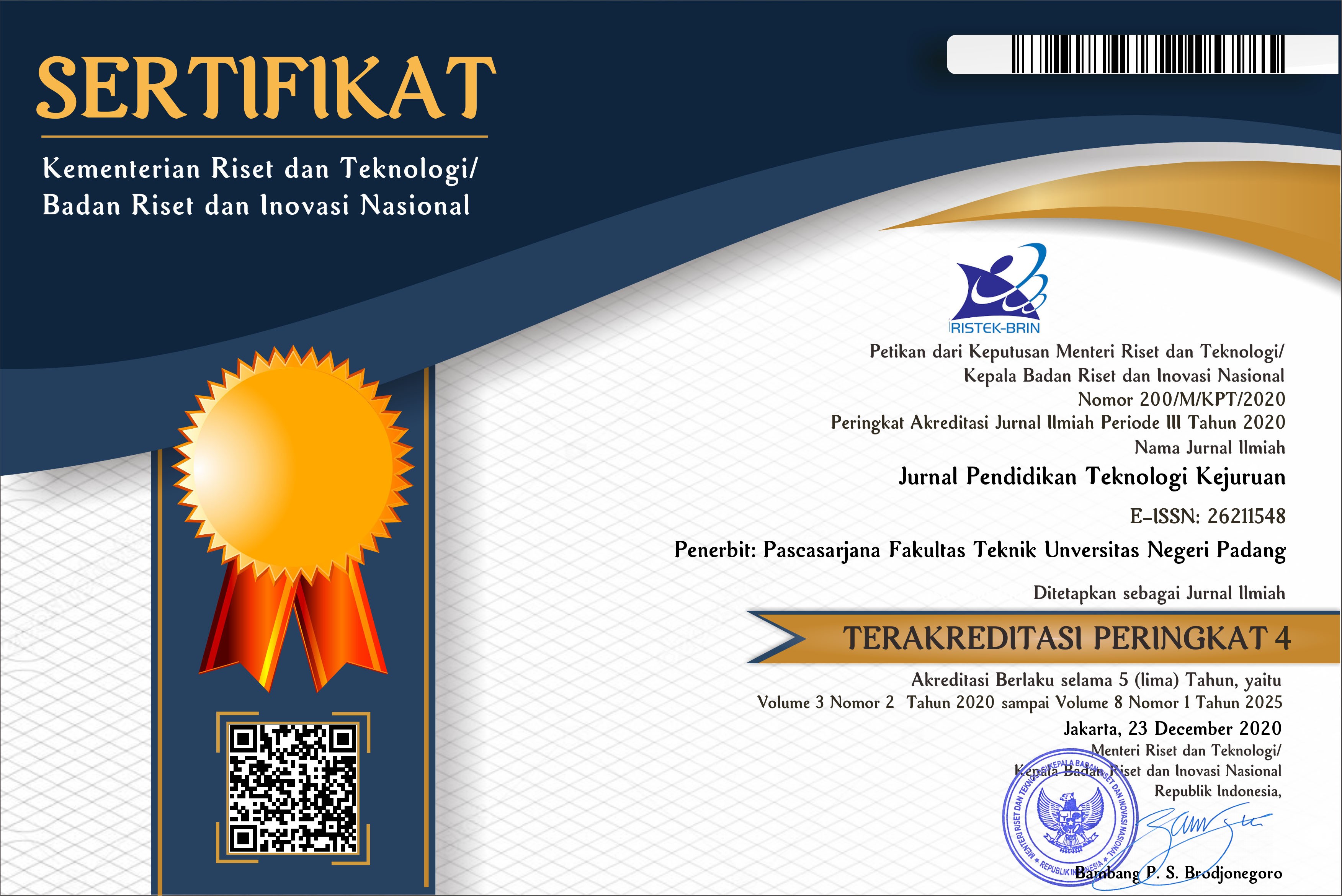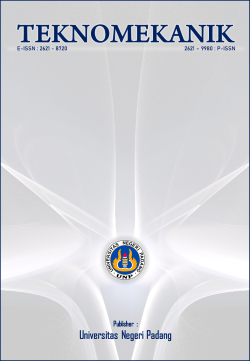Development of computer learning and basic network e-modules
DOI:
https://doi.org/10.24036/jptk.v3i1.4023Keywords:
ADDIE, Practicality, Learning ModuleAbstract
This research is motivated by the limitations of time learning that can be used by students in the class with the characteristics of vocational learning that requires students to know with skills (competencies). The teacher-centred learning process also slows the level of mastery of the material that students should have. The purpose of this research is to produce the appropriate e-modules used in the subjects of computer and basic network students in grade X TKJ at SMK. The type of this research was Research and Development by using ADDIE development model. This type of development research is with analysis (analysis) needs to be developed, design to choose Media, design and make media, development (development) test Practicality, practical done by 1 teacher and 30 students, implementation is done implementation in students by teacher, and Evaluation (evaluation) of data assessment result of multimedia-based learning module deserves to be used in Classroom as a simulation tool learning computer lessons and basic networks. Multimedia-based learning modules are applied because they are quality, easy to use and have a fascination if used in the learning process.
Downloads
References
Beydogan, HO & Hayren Z. The Effect of Multimedia-Based Learning on the Concept of Students' Levels and Learning Attitudes. Journal of Eurasian Education Research, Edition 60, 2015, 261-280. 2015.
[2] Hake. Analyzing Change /Gain Scores. 1999.
Hamonangan, Tambunan & Efendi, Napitupulu. Interactive Effectiveness of Multimedia-Based Learning Models in Engineering Mechanics. International Education Studies; Vol.9, No.10; 2016 ISSN 1913-9020 E-ISSN 1913-9039 Published by the Canadian Center for Science and Education. 2016.
Leow,Ms. Fui-Theng. Interactive Multimedia Learning: Educational Innovation Classes at the University of Malaysia. TOJET: Turkish Online Education Journal of Technology - April 2014, volume 13 edition 2. 2014.
Muhammad, Rusli. Effects of Animation in Multimedia Computer Based Learning and Learning Styles on Learning Outcomes. Turkish Online Journal of Distance Education-TOJDE October 2017 ISSN 1302-6488 Volume: 18 Number: 4 Article 13. 2017.
Nana, Sudjana. Learning outcomes Assessment. Jakarta: Rajawali Press. 2005.
Riduwan. Variable-Variable measurement scale. Bandung. Alfabeta. 2010.
Robert maribe branch. intrucional design: the addie approach. 2009.
Smaldino, S E., Deborah L. Lowther ., James D. Rusel. Instructional Tecnology & Media. for Learning: Technology Learning and Media for Learning . Translator . Arif Rahman . Eds. Ninth . Jakarta: Kencana. 2011.
Sugiyono.Quantitative , Qualitative , and R&D Research Methods . Bandung: Alfabeta. 2012.
Taufik Solihudin Development of E-WEB-based modules to improve the achievement of physics knowledge competency in static and dynamic SMA material. Journal of Vehicle Physics Education, 3 (2), 51-61. 2018.
Downloads
Published
How to Cite
Issue
Section
License
Copyright (c) 2020 Satria Ami Marta, Suparno Suparno, Usmeldi Usmeldi, Devri Ramdhan Apriyus

This work is licensed under a Creative Commons Attribution 4.0 International License.






